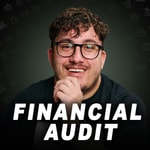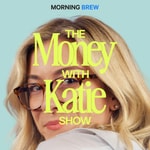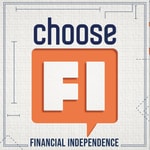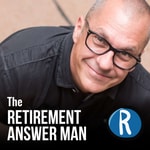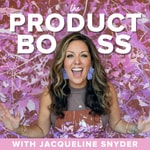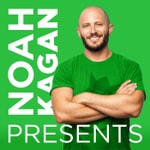Build Wealth Canada Podcast – Details, episodes & analysis
Podcast details
Technical and general information from the podcast's RSS feed.

Build Wealth Canada Podcast
Kornel Szrejber: Investor
Frequency: 1 episode/30d. Total Eps: 136

Recent rankings
Latest chart positions across Apple Podcasts and Spotify rankings.
Apple Podcasts
🇨🇦 Canada - investing
02/08/2025#22🇨🇦 Canada - business
02/08/2025#61🇨🇦 Canada - investing
01/08/2025#14🇨🇦 Canada - business
01/08/2025#38🇨🇦 Canada - investing
31/07/2025#12🇨🇦 Canada - business
31/07/2025#30🇨🇦 Canada - investing
30/07/2025#12🇨🇦 Canada - business
30/07/2025#32🇨🇦 Canada - investing
29/07/2025#13🇨🇦 Canada - business
29/07/2025#31
Spotify
No recent rankings available
Shared links between episodes and podcasts
Links found in episode descriptions and other podcasts that share them.
See all- https://amzn.to/2lm2Unf
2 shares
RSS feed quality and score
Technical evaluation of the podcast's RSS feed quality and structure.
See allScore global : 62%
Publication history
Monthly episode publishing history over the past years.
Protecting Your Net Worth (For Canadians): What Insurance Do You Need?
Season 1 · Episode 124
mercredi 2 octobre 2024 • Duration 51:17
We all spend decades accumulating and growing our net worth, along with many hours of research and studying to optimize our investments and minimize our taxes as Canadians. But what if a single incident wipes all that out? or even just a large portion of it out? Wouldn't it be completely irrational to not eliminate that risk?
The best solution that I can think of for accomplishing this is insurance, so I thought it would be helpful to come up with a checklist that you can use of the different types of insurance available for us Canadians, so that you can go through it, one by one, and decide which types make sense for you, to protect your net worth.
After that, we do a minor pivot to talk about dental insurance and medical insurance for us Canadians. I have been spending an obscene amount on dental care with our two kids. It's super expensive, it stresses me out, and so I wanted to learn more about what the options are for us Canadians when it comes to dental coverage, along with getting medical coverage for things that aren't covered by the government, here in Canada.
Today’s Guests:To help me with this, I brought back one of our popular returning guests, Laura MacKay. Laura is the co-founder and COO of policyme.com, Canada's fastest-growing digital insurance company.
In 2021, she was named one of the Women of the Year by Bay Street Bull. She has a Bachelor of Mathematics from the University of Waterloo, and her degree focused on Actuarial Science, which included learning about mortality risk, the basis of life insurance pricing and valuation.
Laura is also joined by her colleague Natalie Dupley, who comes from the not-for-profit sector. Natalie is now a licensed insurance advisor that works with Laura, and specializes in life, accident, and sickness insurance.
Links from the EpisodeAbout Laura's Company: PolicyMe.com
Educational Guides from the Episode:
Types of Dental Insurance Plans in Canada
The Canadian Guide to Health Insurance Plans
What is Life Insurance: Meaning & Comprehensive Guide
Questions Covered:-
To kick things off, can you take us through what insurance us Canadians typically need, so that we don’t miss out on any critical coverage that we should have?
-
One type of coverage that I think isn’t always thought about for us Canadians is health and dental insurance, particularly since we’re used to having most of our medical expenses covered by the government. Can you take us through some common misconceptions about health and dental insurance, as well as who it would be most useful for?
-
When I think of cases where I need insurance, it’s typically for very sudden and time sensitive events like a car crash, or dental procedure that I need done as soon as possible. But what about having insurance for things that are less sudden like therapy and mental health, or things like braces or corrective eye procedures like LASIK surgery? How does having private insurance work in those cases?
-
When it comes to this type of insurance, how do we determine if it’s more financially sensible to pay-out-of-pocket for these healthcare costs vs purchasing a Health & Dental Insurance plan?
-
Before we continue with more educational questions, I wanted to give you a chance to speak about PolicyMe, what you do, and I realise that you also specialise in health and dental insurance so perhaps you could speak about that?
-
What are the key components to look for when evaluating this type of insurance?
-
When it comes to health and dental insurance plans, is this something that also covers you when travelling? Or would that be separate?
-
Of all the things covered under a Health & Dental plan, what areas of coverage do most Canadians prioritise or care about? and what are some areas of coverage that you think are underutilised (or that Canadians can stand to benefit from more)?
-
What are some of the most common questions that Canadians ask when it comes to health and dental insurance?
-
Can you tell us more about PolicyMe, how you differentiate yourselves, and what you offer?
Financial Lessons Learned After 10 Years of Interviews on the Build Wealth Canada Podcast
Season 1 · Episode 123
mercredi 21 août 2024 • Duration 50:57
This interview will be a bit different as I was recently interviewed by Financial Journalist, Ellen Roseman from Canadian MoneySaver Magazine where she asked me some great questions, and so I thought it would be great to also publish that interview, here on the Build Wealth Canada Show.
In the interview, we cover what lessons for Canadians I have learned after doing close to two hundred interviews with financial experts, over the past 10 years.
My wife and I have also been either fully or semi-retired for the past 8 years, and so Ellen asked me if I have any advice for those who are also planning to retire in their 30s like us, or just retire early in general, and she asks what kind of financial changes or challenges were we surprised by that you should know about to help you with your own journey towards financial independence and early retirement.
Ellen has also been teaching investing at the University of Toronto for the past 20 years, so in the interview, she also shares some of her lessons learned over that time.
Enjoy the episode, and if you’d like to hear more interviews done by Ellen, you can check them out on the Canadian MoneySaver Podcast which you can find in your favourite podcast player.
Thanks for tuning in, and you can get all the show notes and free resources over at BuildWealthCanada.ca.
How to Live Off Your Investments in Canada - Kyle Prevost
Season 1 · Episode 114
mercredi 15 novembre 2023 • Duration 52:55
In this episode, you’re going to learn:
How to deal with the volatility of the stock market, once you are financially independent and are living off your investments:
There are many schools of thought and structures when it comes to dealing with this challenge here in Canada. Retirement expert, Kyle Prevost takes us through his research on the top recommended and respected structures that he has uncovered for us Canadians.
We also go through Kyle’s research on the optimum location for the fixed income portion of your portfolio. Traditionally the advice has been to keep fixed income like bonds in our RRSP. But does that still apply considering these higher interest rates that we are now experiencing here in Canada? And what about GICs? How do they fit into all of this? Should we be using those instead?
Last but not least, after taking into account all the research that he’s done on investing and financial planning for over a decade, Kyle shares what types of investments he buys for his own investment portfolio, and what accounts he puts his own investments in for the greatest tax savings and efficiency.
Questions in this Episode:-
Once someone has hit their financial independence number here in Canada and wants to start living off their portfolio, what have you found to be the top recommended structures to deal with the volatility of the market? For example, having a rule for how big the cash cushion should be, using GIC ladders, etc.
-
What investments do you buy for your own portfolio, and what accounts do you put your own investments in?
- From your research, what have you found to be the optimum location for the fixed income portion of our portfolio? Traditionally the advice is to keep fixed income like bond ETFs in our RRSP. Does that still apply considering these higher rates? What about GICs?
If you liked the episode sign up for free to receive all new episodes as they get released, news on giveaways, and the free guide on the Top 5 Personal Finance and Productivity Tools.
Is Your Financial Advisor Ripping You Off?
Season 1 · Episode 24
lundi 21 mars 2016 • Duration 18:21
This episode covers how to protect yourself from overpaying in hidden investment fees, and how to ensure that you are getting unbiased advice from your financial professionals.
Did you know that there is a lot of conflict-of-interest that exists with many of the financial advisors here in Canada. We also have one of the highest investment fees in the world.
While there are ways to bypass these fees, you need to know what to look for so that you can spot if your advisor is recommending a poor investment that is primarily designed to maximize their firm’s profits, instead of growing your net worth.
Join me as we cover some of the most dangerous traps that exist for us Canadians in the investing and financial services industry.
Links and Resources- Top Tools and Resources for Financial Independence (for Canadians): Sign up anywhere on www.BuildWealthCanada.ca for a free guide on all the top tools and sites that I’ve personally used to help us achieve financial independence in our early 30s. They’re also what we use now to optimize and manage our finances, and ensure that we’re paying the lowest fees while getting solid returns on our investments.
- Kornel's investing course with free sample lessons at www.BuildWealthCanada.ca/invest
How to Make a Full Time Income Freelancing from Home (10 Year Pro Shares Top Tips)
Season 1 · Episode 23
dimanche 13 mars 2016 • Duration 01:03:53
My guest today is Miranda Marquit who is at the top of the heap when it comes to being a freelance writer and professional blogger. She is the author of her book called Confessions of a Professional Blogger, and has basically achieved what many freelancers just starting off are hoping to achieve.
I thought it would be great to get her on the show to give some advice to aspiring freelancers and bloggers. Miranda is also very honest, so it’s really great to hear someone tell it like it is, instead of hearing some fairy-tale advice that doesn't coincide with reality.
Miranda also talks about the importance of having a website to build your brand (whether you’re a freelancer or someone who is trying to have their own business).
You can check out my free step-by-step video course on how to build your own website here: Buildwealthcanada.ca/build or if you want to learn what is involved in started a side-business in Canada you can learn it all here: BuildWealthCanada.ca/business.
Links and Resources CoveredMiranda’s Book: Confessions of a Professional Blogger
Free Video Course: How to Start a Side Business in Canada
Free Video Course: How to Build a Website from for your Freelancing Practice and/or Side-Business
Miranda’s Sites:
Dragon’s Den Winner Shares Top Tips on Having Your Own Business On-the-Side
Season 1 · Episode 22
dimanche 11 octobre 2015 • Duration 01:31:41
Today I have Dragon’s Den winner Lee Renshaw on the show, and we’re going to talk all about tips and strategies that you can implement if you want to start your own business on-the-side here in Canada.
One of the things I noticed based on the emails I received from listeners of the show, is that a lot of Build Wealth Canada listeners would actually like to start their own business on-the-side here in Canada but aren’t exactly sure how to do it and how to set it all up since a lot of the information out there is specifically for the US, and there isn’t a good step-by-step guide out there specifically for Canadians.
Because of this, I decided to built a free step-by-step video guide for you about everything you need to know about setting up your own side business here in Canada. You can check out the full video guide over at BuildWealthCanada.ca/business.
In addition to that, it’s a good idea to have your own website for your new business on-the-side, so I’ve created a 2nd free video guide showing you step-by-step on how you can easily build your own website whether you’re looking to start a blog, provide a service, or sell a product.
What’s also neat is that in the guide, I’m actually building a real-life website for a real business, and I recorded step-by-step how I do it so that you can follow along, and build your own website.
I’m sure you’ll love it, it’s totally free, and the link to that guide is BuildWealthCanada.ca/site
Link’s & Resources Covered- Top Tools and Resources for Financial Independence (for Canadians): Sign up anywhere on www.BuildWealthCanada.ca for a free guide on all the top tools and sites that I’ve personally used to help us achieve financial independence in our early 30s. They’re also what we use now to optimize and manage our finances, and ensure that we’re paying the lowest fees while getting solid returns on our investments.
- Kornel's investing course with free sample lessons at www.BuildWealthCanada.ca/invest
- How to Start a Side Business in Canada Video Guide: Buildwealthcanada.ca/business
- How to Build Your Website Video Guide: Buildwealthcanada.ca/site
- Lee’s Site: www.risegear.com/
- Tell us your story and how did you end up dominating Dragons’ Den?
- Let’s fast forward. What kind of an impact did being on Dragons’ Den have? How is your business doing now?
- For those wanting to have a business-on-the-side, or eventually their own full-time business, what are some tips you have for them when they’re just getting started.
- What specifically did you have to do to start your own business here in Canada?
- What are some top mistakes you made, and how would you have done things differently knowing what you know now?
- What are your key success factors that got you to where you are today?
- When it comes to marketing and promoting your business, what is working well for you now? (marketing channels, specific tactics, etc.)
- If you had to start over completely from scratch where your business didn’t exist, and all you had was $500 saved up, where would you invest your time and money to start your business
- Where can we learn more about you and Rise Gear?
How to Avoid Money Problems with Friends, Family & Co-workers
Season 1 · Episode 21
lundi 7 septembre 2015 • Duration 01:16:48
Today I have author Valerie Rind on the show and we’re going to talk all about how to avoid getting into difficult financial situations when it comes to friends and family.
Valerie has interviewed a ton of people who have actually gone through these types of problems in their lives, and is going to share with us how we can avoid some of these catastrophic financial issues that can creep up when we’re dealing with friends, family and co-workers.
Links and Resources- Top Tools and Resources for Financial Independence (for Canadians): Sign up anywhere on www.BuildWealthCanada.ca for a free guide on all the top tools and sites that I’ve personally used to help us achieve financial independence in our early 30s. They’re also what we use now to optimize and manage our finances, and ensure that we’re paying the lowest fees while getting solid returns on our investments.
- Kornel's investing course with free sample lessons at www.BuildWealthCanada.ca/invest
- Valerie’s Book: Gold Diggers and Deadbeat Dads: True Stories of Friends, Family, and Financial Ruin
- Velerie’s Site: valerierind.com
Part 2 – Lessons Learned from Investing $1 Billion (Stock vs ETF vs Mutual Fund Investing)
Season 1 · Episode 20
dimanche 16 août 2015 • Duration 31:16
This is part 2 of the interview with Peter. If you missed part 1, it's the episode right before this one.
Episode Description: Today I’m thrilled to have Peter Hodson on the show who is the owner of 5i Research, the Canadian MoneySaver Magazine, and in his investment career, has managed over $1-billion dollars in assets.
I’ve always wanted to have Peter on the show to pick his brain about investing best practices here in Canada, and see what he learned over his decades of professional investing.
Peter and his team have also been generous in providing Build Wealth Canada listeners with a special offer where you can get your investment questions answered, and learn more investment best practices by getting a free trial membership over at www.buildwealthcanada.ca/trial. As a "thank you" for taking a look at their research, you'll also receive a free 1 year digital subscription to Canadian MoneySaver magazine (Canada's largest personal finance magazine).
Links and Resources- Free 1 month trial plus free 1 year subscription to Canadian MoneySaver Magazine: www.buildwealthcanada.ca/trial
- Top Tools and Resources for Financial Independence (for Canadians): Sign up anywhere on www.BuildWealthCanada.ca for a free guide on all the top tools and sites that I’ve personally used to help us achieve financial independence in our early 30s. They’re also what we use now to optimize and manage our finances, and ensure that we’re paying the lowest fees while getting solid returns on our investments.
- Kornel's investing course with free sample lessons at www.BuildWealthCanada.ca/invest
- Can you start by telling us your background, and your story from your days on Bay Street, to now running 5i Research and owning Canadian MoneySaver magazine?
- In Canada it seems that investors fall into one of 5 main categories. They either:
- Buy mutual funds
- Buy indexes
- Buy individual stocks for growth
- Buy individual stocks for dividends
- Buy a combination of the above.
Can you walk us through these options and how do we decide what type of investing is right for us?
- Before we dive into more detail and talk about 5i, what are some key investing lessons that you’ve learned over the years that we can apply to our own investing lives?
- Let’s talk about 5i Research. For those Canadians that haven’t heard of 5i, can you tell us more about what it is that you do, and how is 5i different?
- You have a model portfolio for growth, and another for income on 5i. Can you explain the difference between the two and how do we know which one to follow based on our situation?
- How do we choose between a growth vs a balanced portfolio?
- How have these portfolios been performing compared to the index?
- Why don’t I just invest in indexes instead of following the 5i portfolio? Is it just because of the potential for higher returns or are there some other advantages or disadvantages? (ex. greater diversification among different industries)
- What if I don’t want to be researching and analyzing individual companies. Is 5i still a good fit for me? (i.e. can I just model your portfolio and not do anything else other than re-balance?). Or, do I need to be actively researching the companies you suggest after your initial recommendation to ensure that they are still a good fit?
- Is your portfolio just for Canadian companies? If so, what sort of asset allocation do you suggest outside of Canada for diversification purposes?
- Would you recommend using the 5i portfolio completely for the Canadian portion of our portfolio, and then use ETFs for international exposure?
- ETFs that model a broad market index can now be purchased for free from certain discount brokerages here in Canada. If we are to follow the 5i portfolio, then we now have to deal with paying transaction costs every time that we purchase a stock. If somebody would like to invest a set percentage of their salary every month, what’s the step-by-step process that they should take to do it most efficiently and to minimize fees while still being diversified (which is hard to do if you’re only buying one company or two at a time)?
- Would this workflow/strategy change depending on how much someone has to invest every month? What if we have a lump sum to invest?
- Should I use my TFSA or RRSP for the 5i portfolio? What about using an unregistered account? Should I ever be using that instead? (i.e. preferential tax treatment on dividends). Does this vary based on whether I follow your income portfolio vs your growth portfolio?
- Your portfolio has done really well. What if we’re concerned that we’ve missed the boat and are now buying these companies when their prices are already at their peak (especially for those companies that have done really well)?
- What are your thoughts on asset allocation between stocks and bonds? Do you recommend bonds? If not, what do you suggest?
- You assign a letter grade to the stocks in your portfolio too. Is that more if we aren’t following your portfolio and are just picking and choosing stocks?
- For our ETF portion of the portfolio, what are your thoughts on more targeted ETFs like small cap ETFs vs just going for the broad market index? The more targeted ones can have higher fees so is it worth it since now your return has to try to offset those?
Lessons Learned from Investing $1 Billion (Stock vs ETF vs Mutual Fund Investing)
Season 1 · Episode 20
dimanche 16 août 2015 • Duration 50:55
Today I’m thrilled to have Peter Hodson on the show who is the owner of 5i Research, the Canadian MoneySaver Magazine, and in his investment career, has managed over $1-billion dollars in assets. He's also been called "The Warren Buffett of Canada" by the Globe and Mail.
I’ve always wanted to have Peter on the show to pick his brain about investing best practices here in Canada, and see what he learned over his decades of professional investing.
Peter and his team have also been generous in providing Build Wealth Canada listeners with a special offer where you can get your investment questions answered, and learn more investment best practices by getting a free trial membership over at www.buildwealthcanada.ca/trial. As a "thank you" for taking a look at their research, you'll also receive a free 1 year digital subscription to Canadian MoneySaver magazine (Canada's largest personal finance magazine).
Links and Resources- Free 1 month trial plus free 1 year subscription to Canadian MoneySaver Magazine: www.buildwealthcanada.ca/trial
- Top Tools and Resources for Financial Independence (for Canadians): Sign up anywhere on www.BuildWealthCanada.ca for a free guide on all the top tools and sites that I’ve personally used to help us achieve financial independence in our early 30s. They’re also what we use now to optimize and manage our finances, and ensure that we’re paying the lowest fees while getting solid returns on our investments.
- Kornel's investing course with free sample lessons at www.BuildWealthCanada.ca/invest
- Can you start by telling us your background, and your story from your days on Bay Street, to now running 5i Research and owning Canadian MoneySaver magazine?
- In Canada it seems that investors fall into one of 5 main categories. They either:
- Buy mutual funds
- Buy indexes
- Buy individual stocks for growth
- Buy individual stocks for dividends
- Buy a combination of the above.
Can you walk us through these options and how do we decide what type of investing is right for us?
- Before we dive into more detail and talk about 5i, what are some key investing lessons that you’ve learned over the years that we can apply to our own investing lives?
- Let’s talk about 5i Research. For those Canadians that haven’t heard of 5i, can you tell us more about what it is that you do, and how is 5i different?
- You have a model portfolio for growth, and another for income on 5i. Can you explain the difference between the two and how do we know which one to follow based on our situation?
- How do we choose between a growth vs a balanced portfolio?
- How have these portfolios been performing compared to the index?
- Why don’t I just invest in indexes instead of following the 5i portfolio? Is it just because of the potential for higher returns or are there some other advantages or disadvantages? (ex. greater diversification among different industries)
- What if I don’t want to be researching and analyzing individual companies. Is 5i still a good fit for me? (i.e. can I just model your portfolio and not do anything else other than re-balance?). Or, do I need to be actively researching the companies you suggest after your initial recommendation to ensure that they are still a good fit?
- Is your portfolio just for Canadian companies? If so, what sort of asset allocation do you suggest outside of Canada for diversification purposes?
- Would you recommend using the 5i portfolio completely for the Canadian portion of our portfolio, and then use ETFs for international exposure?
- ETFs that model a broad market index can now be purchased for free from certain discount brokerages here in Canada. If we are to follow the 5i portfolio, then we now have to deal with paying transaction costs every time that we purchase a stock. If somebody would like to invest a set percentage of their salary every month, what’s the step-by-step process that they should take to do it most efficiently and to minimize fees while still being diversified (which is hard to do if you’re only buying one company or two at a time)?
- Would this workflow/strategy change depending on how much someone has to invest every month? What if we have a lump sum to invest?
- Should I use my TFSA or RRSP for the 5i portfolio? What about using an unregistered account? Should I ever be using that instead? (i.e. preferential tax treatment on dividends). Does this vary based on whether I follow your income portfolio vs your growth portfolio?
- Your portfolio has done really well. What if we’re concerned that we’ve missed the boat and are now buying these companies when their prices are already at their peak (especially for those companies that have done really well)?
- What are your thoughts on asset allocation between stocks and bonds? Do you recommend bonds? If not, what do you suggest?
- You assign a letter grade to the stocks in your portfolio too. Is that more if we aren’t following your portfolio and are just picking and choosing stocks?
- For our ETF portion of the portfolio, what are your thoughts on more targeted ETFs like small cap ETFs vs just going for the broad market index? The more targeted ones can have higher fees so is it worth it since now your return has to try to offset those?
How to Achieve Debt Freedom with Alan Steinborn
Season 1 · Episode 19
jeudi 6 août 2015 • Duration 01:09:59
- You’re very involved in helping others get out of debt. Can you tell us a little bit more about yourself, and how you started helping others in this area?
- Getting out of debt has a very large psychological component. What are some of the psychological barriers that you found keep people in debt?
- Can you tell us more about the methodology that you follow in your life and your program to help others get out of debt?
- Top Tools and Resources for Financial Independence (for Canadians): Sign up anywhere on www.BuildWealthCanada.ca for a free guide on all the top tools and sites that I’ve personally used to help us achieve financial independence in our early 30s. They’re also what we use now to optimize and manage our finances, and ensure that we’re paying the lowest fees while getting solid returns on our investments.
- Kornel's investing course with free sample lessons at www.BuildWealthCanada.ca/invest
- Book: Your Money or Your Life: 9 Steps to Transforming Your Relationship with Money and Achieving Financial Independence


